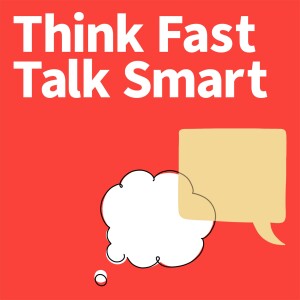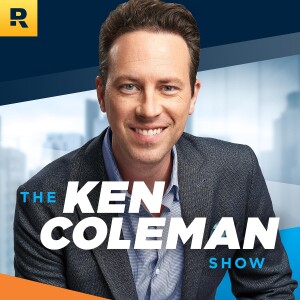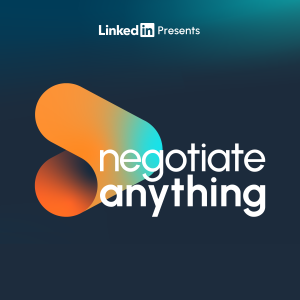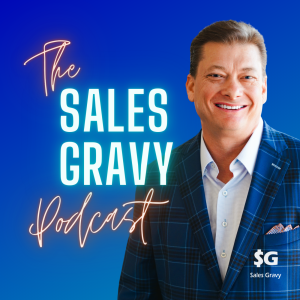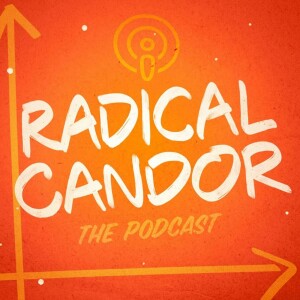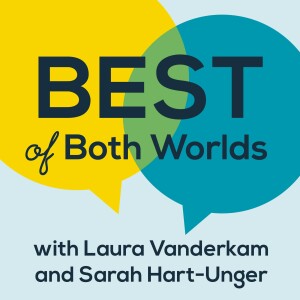Mentorship – and being a good mentee – has been important to alum Cara DeCataldo since the beginning of her career. Cara shares insights into how mentors and others in her professional network helped her to prepare for and thrive in her first role at a small regional firm, then as a product liability litigator in Reed Smith’s Life Sciences Health Industry Group and more recently in her current position as assistant general counsel at global pharmaceuticals company Eisai Inc. She reflects on some of the important lessons that each of these moves taught her and explores the exciting and liberating idea that your next role might not be the one you first expected.
----more----
Transcript:
Intro: Welcome to the Reed Smith podcast, Career Footprints. In each episode of Career Footprints, we'll ask our guest, a Reed Smith alum, to share their career story, how their time at Reed Smith set them up for success, and their advice for early career lawyers. Our goal is to surface insights from the careers of these inspiring professionals that will help you find professional success, however you define that.
Lauren: Welcome to another episode of Reed Smith's Alumni Career Footprints podcast. This is Lauren Hakala, Reed Smith's Global Head of Learning and Development. Today, I'm excited to be speaking with Reed Smith alum Cara DeCataldo. Based in New Jersey, Cara currently serves as Assistant General Counsel at Eisai, a global pharmaceutical company headquartered in Japan. Cara joined Eisai eight years ago after practicing as a product liability litigator in Reed Smith's life sciences and health industry group, what we sometimes call LSHI. So I want to start by asking you about just your professional life currently. Can you tell us a little bit about your role at Eisai and what you do and how you spend most of your time there?
Cara: Yes, definitely. We are a midsize pharmaceutical company, and we have a pretty lean legal department of about 20 attorneys across the entire company. So I support our commercial side of the business, including our medical affairs colleagues. So mostly marketing, sales, and I have an assigned product, which right now is an Alzheimer's drug, which was approved roughly two years ago. And so I am, you know, I sit on our promotional review committee. We review all the materials that are used for sales and marketing. As you know, the life science industry is so heavily regulated. So, you know, we take special care in how we promote the product. And so I sit on those committees and then just generally advise clients on interactions with HCPs and our customers, market access issues. So anything sort of commercially related to the product that I support is the legal work that I do.
Lauren: Wow. So it sounds like you're just really embedded in the day-to-day operations of a large pharma company.
Cara: Yeah, absolutely.
Lauren: Could you tell us a little bit about what you like the most about that kind of pace and that sort of focus of your work?
Cara: Yeah, I really like being part of the team who can sort of think strategically about things to come rather than sometimes when we're in a law firm, we're reacting to things that have already happened. And you're, you know, a ton of strategy involved in preparing for litigation, of course, but it's just sort of different. You're more partnered with your business colleagues and can think about ways to mitigate risk, but doing so in a way that really helps to achieve the business's objectives. I like in the work that I do, I use this term a lot. I'm a bit of a connector because I do see such a variety of questions that are posed to me or materials that are sent to me for my review. And I can really, a lot of times, sometimes our business colleagues are in a silo and they're working. And I kind of see the bigger picture sometimes. I'll say, hey, did you know so-and-so was working on a project that sounds somewhat similar? You know, you might share learnings. And so I really like that part of my job, this connector role that I get to play just by nature of the legal questions and issues that come to me. So I think that's fascinating. And then I really like being part of the pharmaceutical industry. Like I do have deep belief in the science that is achieving remarkable goals to help patients in the field that I mentioned in Alzheimer's disease. It's obviously an incredible unmet need, just a dearth of treatments and just a lack of hope for these patients. And so that's been incredibly exciting to me in my way, in my legal way, my non-scientist contributing way. But contributing to that is really something that I enjoy.
Lauren: That's amazing. It sounds like you have that sort of double crown of loving both what you do and then also feeling good about the mission.
Cara: Exactly.
Lauren: Well, thank you so much for sharing that. So I want to kind of figure out how you ended up in such a great and fulfilling position. And when we spoke the other day, you mentioned to me that you graduated law school back in 2009, which was right in the middle of the global financial crisis. I was a few years ahead of you. I was law school class of 2004. So I remember what a really tough year 2009 was for law school grads. So I'm wondering, can you tell us a little bit about how you landed your first role at a law school in that environment?
Cara: Yeah, it was interesting times. Hopefully not like anything the 2025 graduates will be facing. But as we're talking, it's April. So who knows? Hopefully not. But I did have a summer internship at a regionally based New Jersey law firm, and I was lucky enough to secure an offer. And I thought I would be doing, you know, more business litigation. That's sort of what my offer was extended to in that particular group. But, you know, life unfolded and unfortunately a lot of offers were rescinded at that time to my colleagues. But there was one particular partner who was in the product liability litigation practice in a different office of this regional New Jersey firm that I worked for. And he still had, you know, had a need for an associate. And You know, they said, listen, are you willing to go to this other office, which wasn't terribly far away? New Jersey's not a terribly big state as it is. So I said, yes, of course. And so I did get some great experience. I was doing more like automotive, some asbestos litigation. And it was wonderful because when you got, I didn't know much. I knew not much of anything. I had some great, more senior associates that were really friendly, open door. Like I could ask them those really dumb questions of this partner said to do, you know, get the interrogatories. And I just, what does that even mean? Where do I look? You know, those are just very basic questions. So I was just fortunate I was surrounded by good people, willing people, people generous with their time. And so I learned a lot. But even at that time, I just felt that I wasn't busy enough. And I know that sounds silly, but I think even then I recognized it wasn't the type of experience that I wanted to have when I had the time to get more experience to get me where I sort of wanted to go long term. And so I started looking for other jobs, and a friend of mine from law school had ended up at Reed Smith, And at one point, I think we had just talked over the years, I was kind of like, I'm looking, I'm not terribly, I could use more work. I wanted different experiences, more experiences. And she reached out to me and said, oh, the Princeton office is hiring, you know, a litigator in their product liability, their life science group. So it wasn't, you know, exactly, I wasn't as familiar yet with the pharma industry, but I had those general early associate litigation product liability thought processes, certainly understood that. And so we connected and I interviewed with Melissa Geist and I was just fortunate enough to get hired into that group. And that was just such a great experience overall.
Lauren: Oh, gosh, that must have been like a big change. I want to kind of ask you about that. So you were at a regional firm, New Jersey-based firm, I understand. And then you made this move to Reed Smith and suddenly you were at a global firm with colleagues all over the world. How was that for you?
Cara: Yeah, it was super exciting. And I do always say that I have the best of both worlds work standing in the Princeton office because, you know, it's sort of a smaller office with the resources of a national farm, which was super exciting. So it definitely had the clients and the sophisticated type of work that I knew that I would have ample opportunity to grow my skill set. It also just had, you know, the ability to network with other attorneys of these like great minds and different groups. And they had, you know, different networking events and just seeing the leadership structure, like. You know, the firm chair. And that's really like running more of a business, you know, certainly all law firms are running a business, but at a large scale. And so all of those opportunities to meet people doing such a wide variety of legal work and networking with those people, trying to understand the work that they did, that was really exciting and important because you can never grow your network, you know, big enough to know, because none of us are going to be experts in every area of the law. It's really not possible. It's about, you know, having a network to rely upon. And so that was super exciting to me. And then really just, again, I started with this point, but the focusing on the nature of the work. So at that time, there were some large, you know, multi-district litigations going on at which we were, you know, chief defense counsel. And so the exposure to, you know, drawing up expert reports and helping to develop them in the context with expert witnesses. The ability, at one point, some judge went nuts and ordered all these, you know, hundreds of depositions needs to be done within one month. And so we were kind of dispatched out there to do it. And sometimes actually jumping in, getting your feet wet is, you know, an invaluable learning experience. We certainly had tons of guidance and mentors and people at the partnership level that had prepared us. But the ability to go and start taking depositions, at that point, I was probably a fourth or fifth year attorney out of law school, was important and confidence building and all of those wonderful things that have set me up for later on in my career.
Lauren: And you mentioned that you were interviewed by Melissa and worked mostly with her Melissa Geist partner in our Princeton office. What did you like about working with her in particular?
Cara: Well, I understand we only have a half hour total. So I cannot say enough nice things about Melissa. She is warm. She is generous with her time. But, you know, she's an excellent attorney. She is a straight shooter. So just really practical advice. You know, she wouldn't tiptoe around saying, like, this is what the client expects. They would want an answer like this. If you just send something like that, that's not sufficient. So clarity in her willingness to provide advice was really important. And I think just feeling like someone had confidence in you and introducing you around the firm and stuff like that was really important to me. And just modeling, you know, on a personal level of someone who had a family at the time, her children were probably the ages that mine are now. And having somebody model that this is indeed possible, not only possible, but that you could thrive. She's someone who if she makes a mistake is not afraid to say I made this mistake but this is how we're going to move forward and and fix it and so all of those things are all the reasons why I love Melissa. We still try to get lunch a couple of times a year and it's probably one of my favorite lunch dates of the year because she's just a really wonderful human being as well as a fantastic lawyer.
Lauren: I love that point you made about her willingness or, you know, any good leader's willingness to admit when they've made a mistake. Because as a junior lawyer, you can feel like one mistake is and it's the end of your career. But to see that when you speak up, someone else understands and the whole team will be focused on fixing the mistake. I think that is that was like sort of a breakthrough moment for me in my career when I realized that.
Cara: So true, Lauren. And I literally remember losing like hours of sleep over like, you know, a typo in an email or just things that you don't have the perspective yet. And then to see people model that are doing really large scale, important work to model like we are all human beings and mistakes will happen. It's how you're able to catch them, own up to them, address them. I mean, that goes for every facet of life. But it was really important in law when I think, you know, associates tend to be very hard on themselves. It's a big learning curve right out of law school. So, yeah, that someone who models that well was really important to me.
Lauren: So last question about your time at Reed Smith before we move forward on your career path. What are some things that you feel like you did as a lateral and as a mentee to cultivate your success and your relationship with Melissa?
Cara: Yeah, I do think a couple of things. I think one thing is your willingness to say yes, when it's possible. Yes, I would like to take on this pro bono assignment because it's just something different and a new skill that I might glean. Yes, there's this, you know, our firm is having a happy hour and yes, I want to go and just meet more people. So, you know, I say that with the. You know, when you have the time, you're capable of saying yes. If it's a smart yes, like the willingness to do that, I think is important. I think there's just something to be said about being a team player and all of those good things. I think cliches come from a foundation of truth. And so there's certainly, I was very eager and willing at that time. Part of the reason I lateraled over was I wanted to grow. And so to do that, maybe some things that you wouldn't necessarily even feel comfortable, just jump in and say yes. And so that's part of it. I think, too, I remember pretty early on, maybe we had worked together for about two months. I did ask Melissa, is there anything I could be doing differently? And I think that ability to ask people. And now that I manage people, it's so nice because it makes you as the manager stop and reflect. And so just to ask, to seek feedback, I think is an important thing. And it was so mine. I remember her saying, like, when I send you stuff, you don't respond to my email. Just maybe a couple days will go by and you produce the work product. And so, you know, phew, it's done. That's wonderful. But maybe you could just acknowledge, like, received working on it or I don't have any. And it was just such a quick aha moment of, sure, absolutely. Thank you for sharing that. I will do that. And so obviously that helped our immediate work relationship. But that simple principle can be expounded. And I always do that even now when I, if it's a client request that comes in and, you know, I can, I can gauge that it's not urgent compared to some other things that I'm working on. But I will always say writing to acknowledge receipt, I'll get back to in a few days just because emails do sometimes get lost. And so something minor like that does illustrate that seeking feedback is just important to develop those relationships.
Lauren: Yes. That's such a good point, especially as a relatively newer lawyer. You were like a fourth year when you started at the firm working directly with a partner. It's a good reminder that you can ask for feedback whenever you feel like they might have something to say, and it makes it so much easier for them to invest in you. All right. So let's talk about your move in-house. So it sounds like you were kind of loving it at Reed Smith. So I'm curious, what caused you to apply for your role at Eisai? How did you even find out it was open? Tell us more about that.
Cara: Yeah. And so I did always think that I would enjoy working for like a business. And, you know, I'm starting to think, I don't know that my long term aspiration is like, is trying a case. I liked a lot about litigation, but in this, the invaluable skills that. Doing that work develops. But I was starting to think, you know, I don't see that as my long-term goal, being lead trial counsel or anything like that. And so I was, you know, just sort of contemplating like long-term goals. I was very, I was drawn into the idea of helping like a business, like working for a pharmaceutical company. And then I did have a friend, that same friend that went to Reed Smith. She had left. We only, it's funny because we probably only overlapped for like a couple of months and then she had gotten this in-house position at Eisai. And so she called me at one point and was just like, oh, there's, you know, this woman, Christine, who supports the commercial side of the business is looking for someone, you know, maybe it'd be interesting. So I'm interested. I know she sent me the job description and I remember saying to her like, oh, this isn't what I do because it wasn't, you know. A direct translation. It wasn't looking for, you know, support someone on multi-justice litigation, like a litigate. And so I thought, oh no. And so I kind of sat on it for a little bit, but they were still, Danielle was like, they're having trouble finding someone. Like, I know that you're super smart and capable. I think you should apply. And so, so that was sort of my foot in the door. And then it was interesting as soon as I did get the interview and there was, you know, I had met with a lot of people. We, to this day, we still do multiple interviews because it's a small department. I think, you know, you want to make sure it's the right fit. So I probably interviewed with, you know, six people in one day, but I remember being struck by a lot of people had a similar background and, you know, just comments picking up throughout the interviewing process of like, we think these are good skill sets and, you know, you can learn some of the advertising and promotional like 101, how to review pieces. But if you have these, you know, the judgment that litigation instills and all of that. So I ended up applying, had a good experience. You know, I, like the people I currently work with, could tell that from the interview process. And so I did accept the position. It was one of the hardest conversations I ever had to have when I resigned, just because I was blessed that I wasn't in like a situation where I was desperate to get out. But it just, it was the right timing. And I will add, I also did have at the time a one-year-old. My husband's in litigation. So the uncertainty and the demand of litigating hours was taking its toll. I will say that. I don't know that I could say that was the primary driver, but it was a contributing factor for sure.
Lauren: Yeah, no. And so you mentioned having a lot of conversations about needing to learn when you got there and everyone kind of knew that. But I'm curious, going from being like a trial lawyer to this advisory role, what were the biggest surprises and how did you make that transition so successfully?
Cara: Yeah, it was a learning curve. And I will say for about six months, because like you were going from this high stakes, high speed. At that point, I kind of knew what I was doing in my current role to kind of just saying like, oh, my goodness, am I contributing here? And so it took a lot. I used that same feedback model. I would ask a lot, like, am I meeting your expectations? But it did. It was almost like I remember a good six months of being like, oh, am I making any contributions at all? So I will say it's a learning curve. Being willing to be vulnerable and ask a lot of questions, because I asked a lot of questions from basic, like, there's a whole nother language that the pharma community, they're so acronym heavy. And I would be Googling, but I'm like, this one doesn't seem that so. Just from asking basic questions, like you're using this acronym, what does that mean? And nobody thought that was, they were all like, oh, yes, yes. Like, of course, we should say that, you know. So all from asking basic questions, kind of to put, you know, any type of humility, check that a little bit at the door. And then then you started to I think one thing that helped me a lot was relationship building, both, of course, within your department, but but with your business colleagues to start to understand their business, their needs, their pressure points, the things that they need help with. And once that started to happen more, I could understand where my role and where my value add could be. And that was important. Also, coming from litigation, we were kind of developing certain skill sets that are specific. And then we're a lean in-house department, so you kind of see a little bit of everything. So it was learning how to really use that judgment that I had honed through my years at Reed Smith, but use that to say, okay, this is an area where I don't know everything about. So this is an area where it makes sense to reach out, refer to outside counsel, get more expertise. Or this is an area where, okay, what I think logically makes sense probably is enough. It probably does. Like that's probably enough of a risk mitigate. So it was applying, like, learning, and that probably took, you know, I quoted this six-month window, maybe that was more of a year, but just learning that skill was something that, you know, I needed to develop in the transition.
Lauren: That's such a powerful point you made about the willingness to be vulnerable and ask questions. Some of the best career advice I ever got, I was starting a new job and had been to a meeting with my boss where I think I did a little bit too much talking and not enough listening. And she said to me, you know, you don't have to add value on the first day. It's OK to just listen. And I really think that that sounds like you did quite a lot.
Cara: Yes, I love that. I love that because I really think that's very, very true. Like we're, especially when you're off and running and you were adding so much value for it to the place where you left, you just feel like, oh, this doesn't feel great. Like they're going to realize they made a huge mistake or something like that. And that's, that's not, you know, you're investing in people for the long term and you like certain things about their background and their resume and their interview skills. And so you offered a job for a reason. in. And so I really love that advice that you got. And it took some time to sit in that uncomfortably for a little bit, but it's true. You have to learn the business. You have to learn the silly things from the acronyms to just what's expected of you. And so I do think that's an important realization that you need to do a little more listening when you first get there. And I do tend to be a little more introverted as a personality style. So that part came nice, But it's that fear of, am I adding any value here? And so just giving yourself a little bit of grace in a transition period, for sure.
Lauren: I love that. And that's a really good segue to our last topic. So you are now in a position eight years later, you've been very successful, and you're now hiring lawyers to join your department. So knowing that some of our listeners might be people quite a lot like you were a few years ago, law firm associates looking for their first in-house role, what can you tell them about what you as someone who's hiring for those roles are looking for in candidates?
Cara: Well, the first thing I would say is go for it, even if word for word, you know, the job description doesn't match necessarily your background. Because I think in hiring, I've learned that that's sort of a unicorn. Because every company, even my role at a different company, they're probably looking for certain like slightly different things because it's so unique to the company and their business needs. So to find one person that ticks the, you know, the eight things that you're saying would be their primary responsibilities is almost never going to happen in my experience. And so you need to have some confidence of like, okay, this isn't quite what I do, but I think what I do would be valuable and would be transferable and just apply anyway. So that's the first thing I'll start off by saying, because I think there's something to job descriptions that it's like, oh, well, you know, this says, let's have, you know, some of your responsibility will be contracting. I don't really do that. So I'm not going to apply to the rest of the job. And so anyways, that's the first thing. I will say we in my department, we all agree that the training that is done at law firms is invaluable. So we personally do look for someone that is coming from not straight out of law school, but is coming from a law firm and that just has experience in the industry. Someone that it's like clear they had done well at the firm. You know, they might have started as the I forget all junior associate and senior associate. So I think, you know, that's kind of clear. The resumes speak for themselves. And then just someone throughout the course of interviewing process. And I did mention we do a lot of rounds and meet with a lot of people. But I think you can start to get a sense of someone in that judgment that I was talking about of because no one's going to know every single thing that, you know, crosses their desk. And so is this a person that's going to be able to say, okay, let me ask you, my manager, this question or let me raise it up to the general counsel or this is an area where I am advocating, I think we need to spend the investment to seek outside counsel, help, or are they going to just try to say, I know all this and shoot all females of like, this is what we should do. And so I do think there's a way to screen for that judgment. But we do look for, and we do think that litigation. You know, any type of like false claim work where you've worked on cases on, you know, whether or not you're the person that's sort of in a government investigation roles or just has crossed over because you're supporting expert witness development. But that's, you know, investigations are certainly its own thing that pharma deals with a lot, companies of both sizes. So, but rarely is there a role dedicated just to, you know, well, at least in a pharma, I will speak to a pharma company our size. We wouldn't have one person whose dedicated role is to deal with that. So the job description may be so much broader, but we do think that's, you know, a great skillset. I'm sure I'm forgetting many things that we look for, but that's some of the top of my mind. We think that training coming from good, solid national firms like Reed Smith is, you guys, law firms have figured it out. Like you guys do a good training program that people who have now in-house, we have less resources to do that. So that background training and judgment are two of the most important things for me.
Lauren: No, that's so helpful to know that someone in your position, And that's sort of what what you're looking for as someone comes to interview with with someone in your role. All right. So I have to let you go soon. But just last question, it's a quick one. If you had two pieces of advice that you could give to someone who's looking to kind of be in a position like yours in eight years time, what would they be?
Cara: Yeah, I think a good one would be to network with people like me, if you have friends that have gone in-house. Because I don't think it is for everyone. I think people, you know, you might think it might be for you, but maybe it's not. So I honestly think getting the perspective of someone who's currently in a similar position at whatever, not necessarily someone that's hiring, but just reach out. Like LinkedIn is a good resource. I would say if I randomly got a message on LinkedIn of like, hey, I'm, you know, a third year associate at whatever firm. And long term, I'm thinking I'd like to do something, you know, based on what I see you do. Do you have 15? I would probably take that like and say, sure, I'd be happy to talk. I can give you an overview. So, you know, I'm not saying necessarily cold calling on LinkedIn people, but networking within your network, your professional network, people who have left the firm before you and do similar things, people maybe contacts, they know someone who used to work there before you started and they went in-house. So I do think tapping into your network to have conversations and then you never know when people have an open position. It's like, oh, this person's interested. They reached out. Like, you know, maybe a conversation starts right there and then that could lead to something. Second piece of advice, my mind is running through many different things. Everything from continuing to do really good work in your current position, because I think, you know, that's important. You can't, you have to be a high performer. Like that comes across in the, in, in like a lot, often you're hired for your expertise in, in your current role. So continuing to do a really good job. I think that's, I mean, that probably goes without saying. And then I think the other thing I already mentioned, which is broaden your search and don't be, don't limit yourself based on job descriptions. I do think that's important.
Lauren: I love, I love the combination of getting to know people, start to learn about roles, think about what you might want to do, but also don't, don't leave your firm before you leave, right? And that, I think that can be really challenging when you're thinking about next steps, but, but it's critical.
Cara: It is critical. You have to be in the, like doing, you have to be excellent. People are looking for excellence. And so you have to really continue to prioritize that. And yes, it could be hard if you're in two places, but I do think that you've said it very succinctly, don't leave your job before you've left because you need to do good, need to do good work.
Lauren: Well, Cara, thank you so much for being with us today. I learned a ton from this conversation and we're so thankful about you sharing your story and being so open about your career path. And thank you to everyone for joining us today on another episode of Reed Smith Career Footprints. We hope to see you again in a future episode.
Outro: Career Footprints is a Reed Smith production. Our producers are Ali McCardell and Shannon Ryan. You can find our podcast on podcast streaming platforms, reedsmith.com and our social media accounts at Reed Smith LLP. To learn more about Reed Smith's alumni network, or if you are an alum of the firm who wants to share your career story, contact Laura Karmatz, Reed Smith's global senior director of alumni relations at alumni at reedsmith.com.
Disclaimer: This podcast is provided for educational purposes. It does not constitute legal advice and is not intended to establish an attorney-client relationship, nor is it intended to suggest or establish standards of care applicable to particular lawyers in any given situation. Prior results do not guarantee a similar outcome. Any views, opinions, or comments made by any external guest speaker are not to be attributed to Reed Smith LLP or its individual lawyers.
All rights reserved.
Transcript is auto-generated.
More Episodes
All Episodes>>You may also like
Create Your Podcast In Minutes
- Full-featured podcast site
- Unlimited storage and bandwidth
- Comprehensive podcast stats
- Distribute to Apple Podcasts, Spotify, and more
- Make money with your podcast
